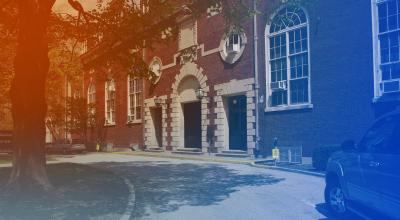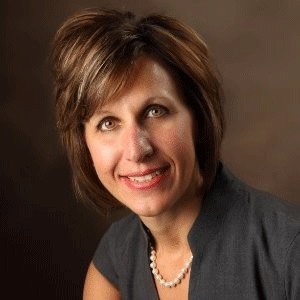
Embedded Counselor Helps Students Cope
AHS E-News Winter 2020

Long before the coronavirus pandemic significantly altered our approach to daily living, the University of Illinois Counseling Center came up with an idea for more effectively connecting students to its services: individual counselors would be embedded in any campus unit requesting them.
Long before the pandemic made the campus a ghost town, the College of Applied Health Sciences lobbied to participate in the program. “The initial counselors were placed in units that generated the most referrals to the Counseling Center or had demonstrated need in another way,” said Dean Cheryl Hanley-Maxwell. “The pandemic timing was coincidental.”
But what good timing it was. Licensed Clinical Professional Counselor Kim Peters joined AHS in August as students returned to campus for the first time since March.
“You didn’t need a crystal ball to foresee that there was going to be a mental health challenge to this,” she said, adding that she has been “very busy” in her time with AHS. “AHS is fantastic as far as working me into the system and letting students know I’m here,” she said. “I’m so grateful.”
Whether working with students or with the clients she sees through her private practice in Forsyth, Kim says the biggest issues she’s seeing involve motivation, focus, concentration, and fatigue. “The overwhelming demand of adapting to the pandemic—that’s loading another layer of stress on already demanding experiences,” she said.
For college students, the pandemic has largely prohibited what they are supposed to be doing at this stage of their lives, that is, developing their own identities, finding out who they are and what they value. Not only are they not having the typical experiences of a college student, they’re coping with an unusual level of isolation.
“Some students have managed it, but it’s been difficult for others,” she said. “They’re homesick, they can’t eat in the dining halls, and they’re scared.”
Her primary goal is to meet with students and assess their mental health needs, and refer them to the counseling center resources for brief individual counseling, group counseling, workshops, or drop-in services. If students need a higher level of care or longer treatment, they are referred to community resources. Telehealth has been a blessing during the pandemic, as she has worked with students located from Cook County to Urbana-Champaign to rural southern Illinois.
For the most part, she has found students to be resilient and hopeful for the future. They may have bad days, in which “the minutia gets under their skin and the dumbest thing can trigger a meltdown,” but having a place to vent about it and normalize their feelings has helped.
Like the students with whom she is working, Kim is looking forward to a post-pandemic world when she will be able to meet with students face-to-face in her office in Huff Hall. She plans to stay with AHS “as long as everyone thinks it’s working, they think I’m a good fit, and everyone is getting what they need,” and hopes that’s a long time.
